2023 Nissan Ariya Empower+ FWD Road Test: It’s nicer than you think

The 2023 Nissan Ariya is the nicest Nissan I’ve driven in, well, forever. If you removed the badges, it’d be easy to convince me this slick and attractive-looking crossover coupe is an Infiniti. And frankly, its silent and smooth powertrain makes it more refined and luxurious to drive than most Infiniti products these days, too. What I’m trying to get at here, is that the Ariya is not simply an electric Rogue or Murano. This is something else entirely, and that’s a very good thing.
Nissan kicks up the ambiance the moment you step foot into the flat-floored cabin. The cream and black two-tone in this test car meshes perfectly with the dark gray wood paneling that stretches from one side of the dash to the other. Unlike some cheaper Nissans, you won’t find any unsavory surfaces to touch or cheap buttons to press. Easily-dirtied piano black plastic is kept to a minimum on flat surfaces. Nissan is really drilling down into some of the details, too. The soft floor mats with fancy “Ariya” text on them are plush while looking fantastic, and all the backlit/flush “buttons” are beautiful to behold.
Some of the unique functional elements in the cabin are a little odd with dubious usefulness, though. The electrically-operated pull-out storage cubby that tucks into the dash feels needlessly complex at best, and simply annoying at worst. When I want to pop my wallet or a take-home box into a storage nook, I don’t want to wait for an electric cubby to whir out and back in to do so. The electrically-operated armrest is novel, but Hyundai’s solution in the Ioniq 5 of being able to just slide it back and forth via a lever is much more convenient and speedier. And yes, those touch buttons on the dash sure do look neat, but I couldn’t help but be a little annoyed when I try to adjust them while driving and I either miss the sensor or the button misreads my touch.
Despite some of these negatives, I still can’t help but to love the Ariya’s cabin. Wrap your hands around the rich-feeling leather wheel, brush your fingertips along the copper-colored trim and feast your eyes on the vibrant screens laid out in front of you. The Ariya’s price is shockingly high — coming in at $59,220 for this Empower+ model after options — but the cabin genuinely backs that price up.
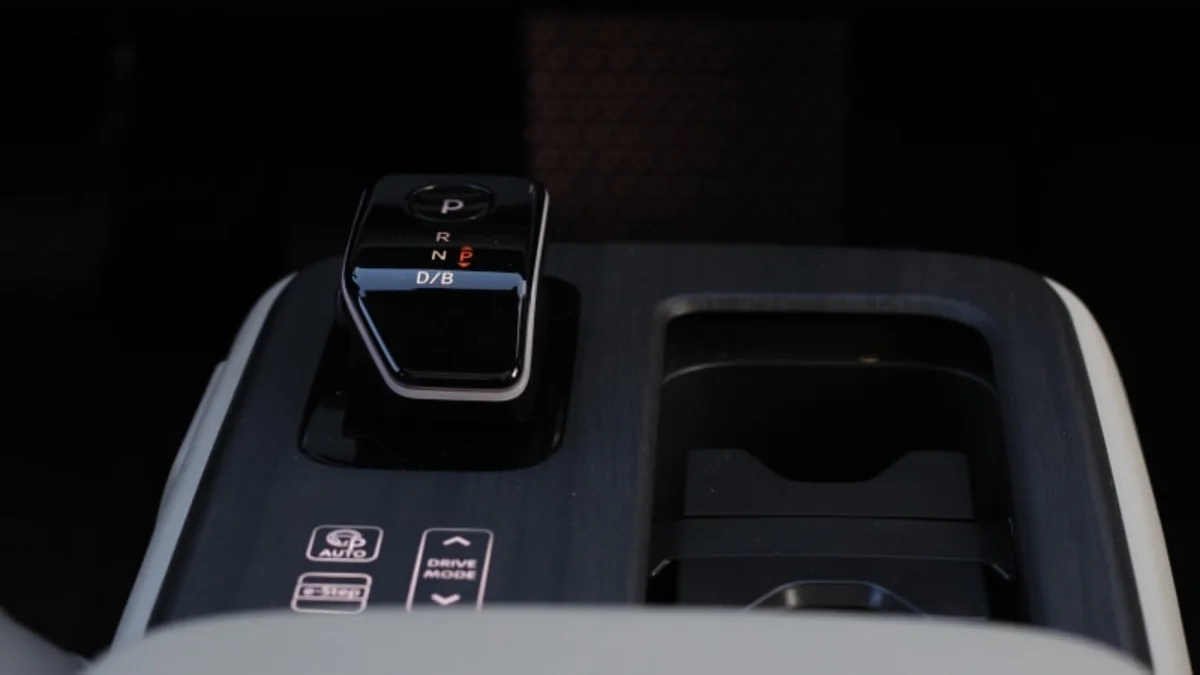
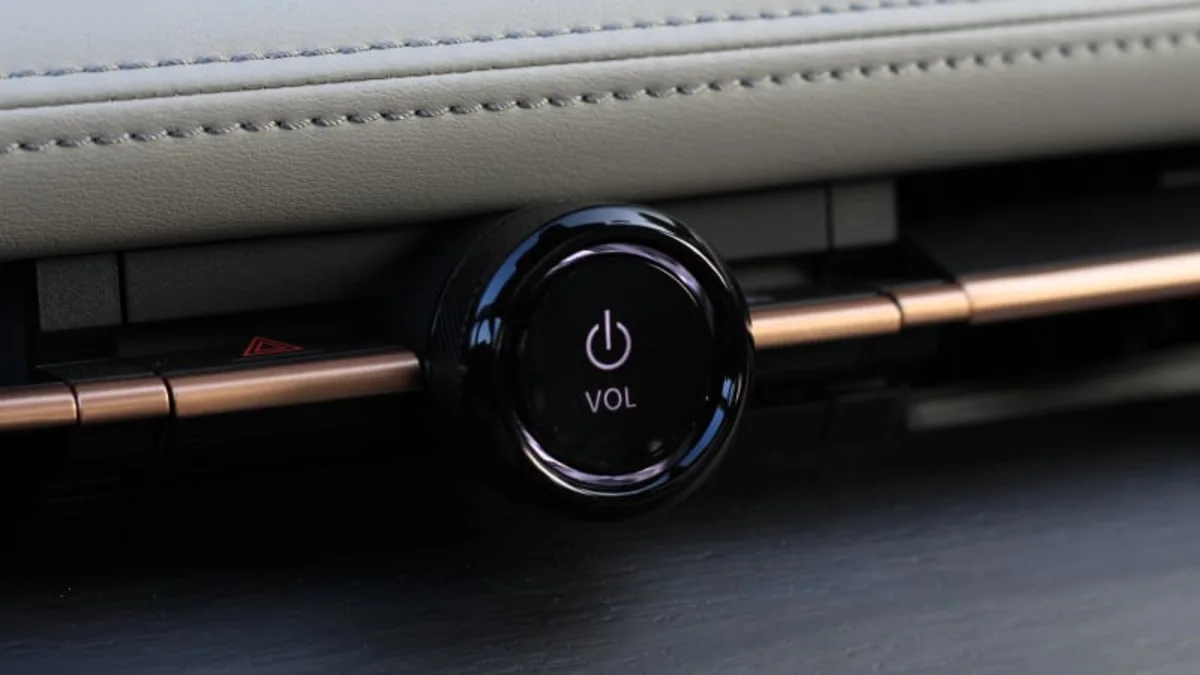
Driving the Ariya is a tale of high highs and low lows. On the plus side, the refined ride and shocking quietness inside the Ariya is luxury-like. Nissan could brand this an Infiniti tomorrow, and it wouldn’t need anything to be improved from that perspective. The smoothness of the electric motor’s acceleration and silky steering give all the inputs a buttery effortlessness to them. Add an isolated yet well-damped and controlled ride to the equation, and the Ariya starts to look like a lovely daily driver. Just don’t mistake it for a sports crossover, because while handling is certainly superior to other Nissan SUVs, this is still a plush and comfort-first vehicle at heart.
Much of the frustration about driving the Ariya stems from the brakes, which isn’t what you’d expect from a company that’s been in the EV market for as long as Nissan has. The “E-Step” mode and “B” transmission mode increase regenerative braking power, but there’s no true one-pedal driving mode. Even the Leaf offers one-pedal driving with its E-Pedal, so it’s doubly embarrassing that Nissan doesn’t offer such a feature in its flagship EV product. The best way to brake the Ariya is with all of the assists off, because with them, Nissan programmed the brake pedal to perform the same ghost movements as Mercedes-EQ electric cars do. The car tries to match up the amount of regenerative braking force with corresponding brake pedal movement, so when you lift off the accelerator pedal, the brake pedal moves, which feels as unnatural as it sounds.
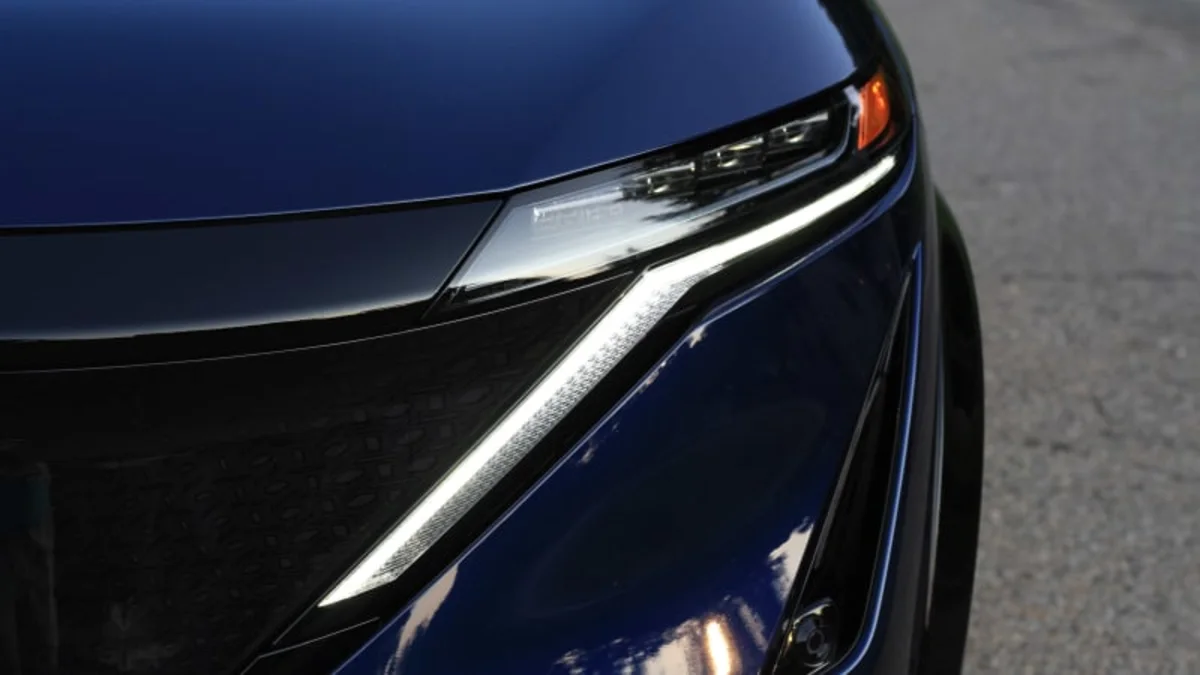
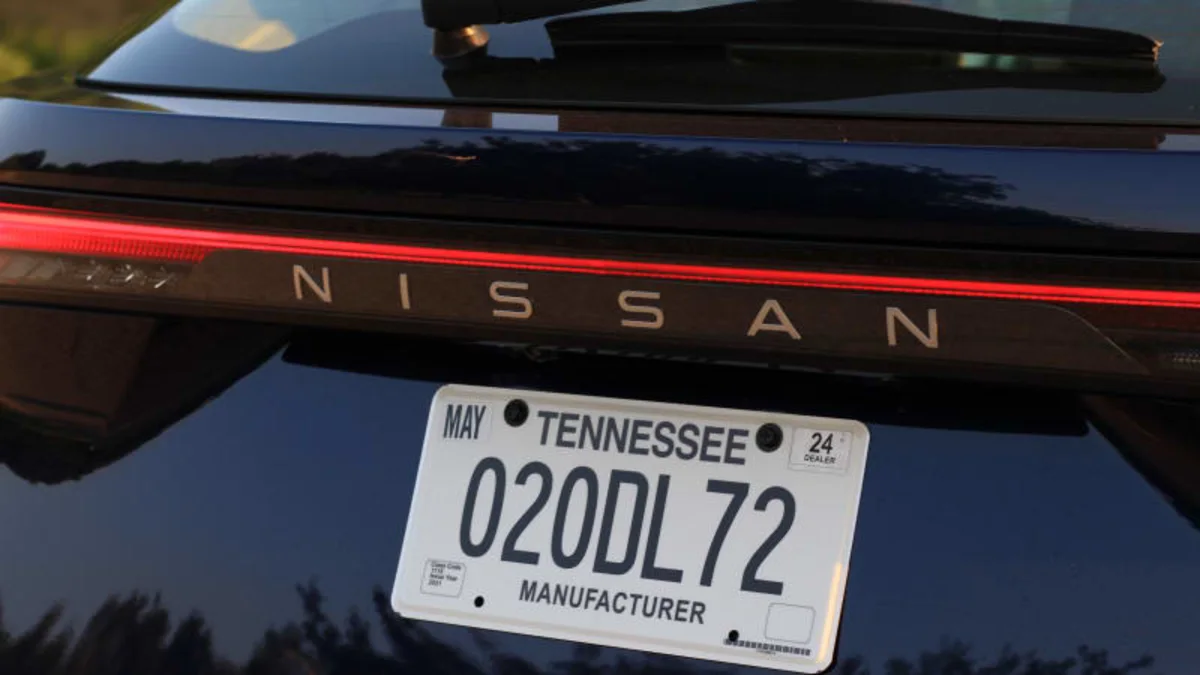
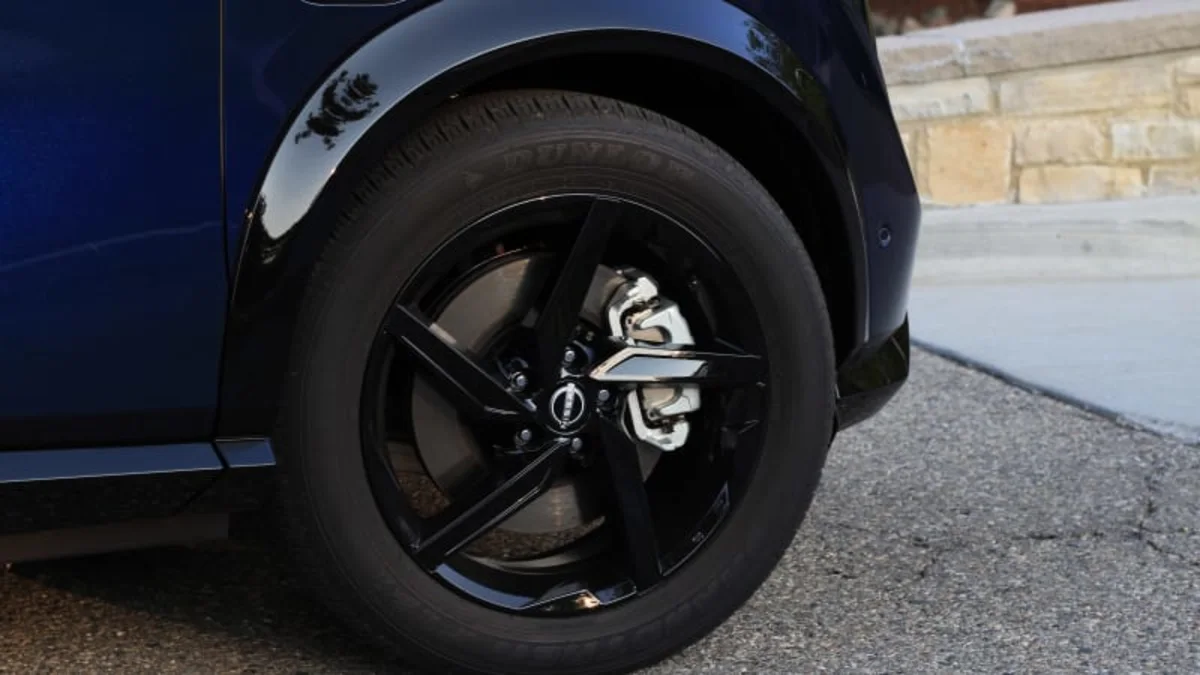
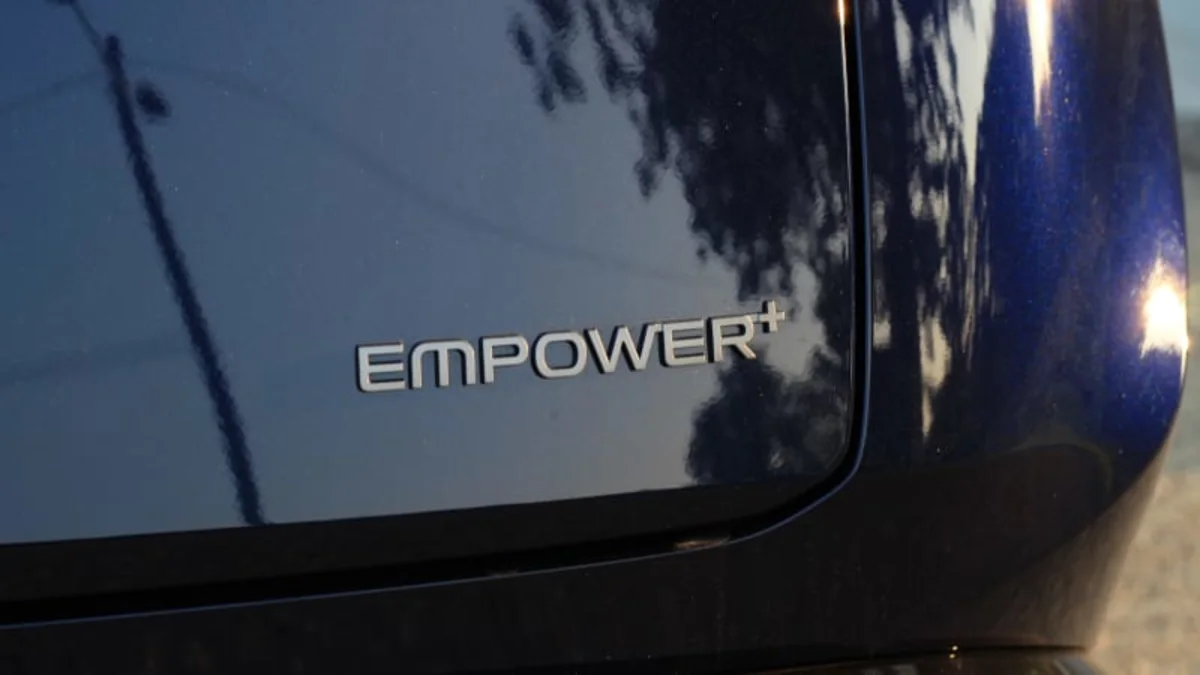
If you’re getting into the EV game and expect rapid acceleration, the Ariya for you isn’t this front-wheel-drive Empower+ model, but instead the e-4ORCE all-wheel-drive version. The front-drive Ariya with 238 horsepower and 221 pound-feet of torque is gentle off the line before picking up speed as you go, sort of like a big jet airplane. Except at no point does the Ariya feel quick — it’ll get out of its own way just fine, though I can’t help but be a little disappointed that $60,000 only buys 0-60 mph in 7.2 seconds. That said, if range is more of a priority, this version of the Ariya is the one to pop for. The Empower+ has the big 91 kilowatt-hour battery pack, and it’s EPA-rated for 289 miles of range.
Charging the Ariya on a road trip will see you stopped at chargers for longer than most of the competition due to its 130-kilowatt max charge rate. We saw it hit speeds in the 120- to 130-kW range in our testing, so it delivers on the promised rate, but a 10-80% charge in the 35- to 40-minute range is double the time you’ll be waiting around versus fast-charging cars like the Hyundai Ioniq 5 and Kia EV6. That makes the Ariya a worse road trip companion, but shouldn’t pose an issue for folks who primarily use it for around-town driving and then plug in at home every night.
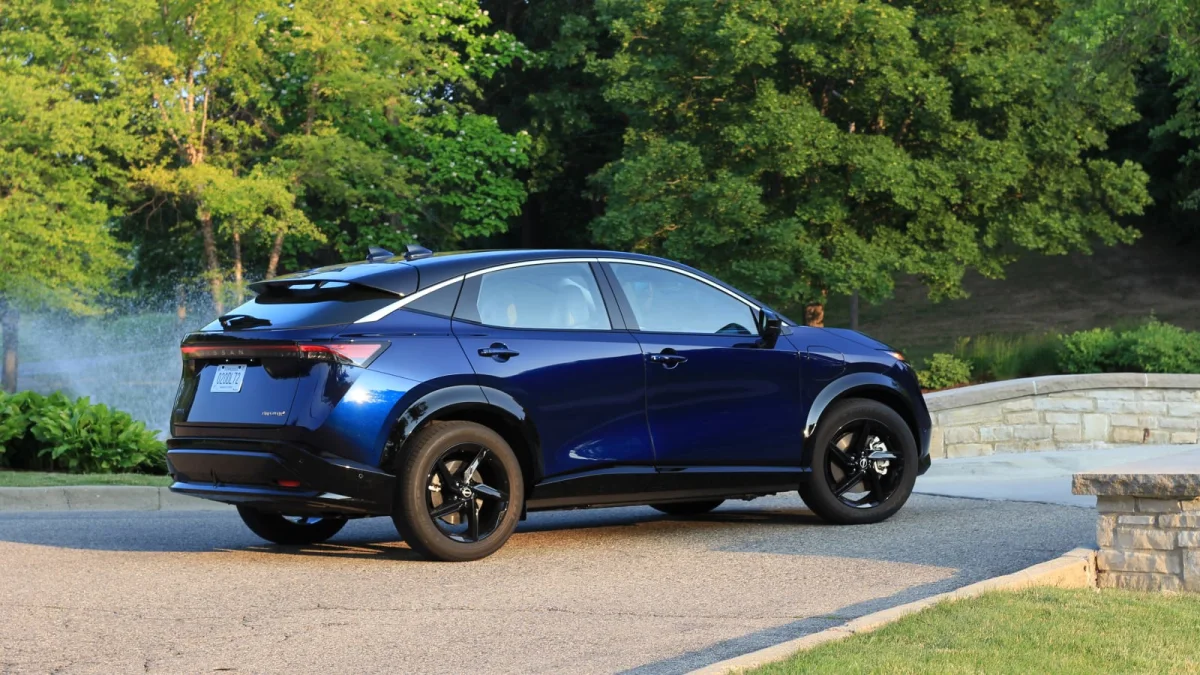
On the other hand, the ProPilot hands-free system at least makes it a lovely companion on the highway. It still won’t topple Super Cruise or other top performers for pure competence, but it’s a feature you’re going to want if the sort of driving you do includes a lot of highways. The system is smart, and the car is almost too good at sensing work zones that’ll cause it to switch off. I appreciate those safety measures with something as complex as hands-free highway driving, though, and in the sections of highway it does work on, the system is clear and coherent at communicating when it’s active or why it’s turning off.
The Ariya’s biggest barrier is its price, because boy it’s expensive for its size. That said, all of the non-Tesla alternatives are also pricey, and you get a lot for your money with the Ariya. The Empower+ is just a mid-level trim, but it’s positively loaded with niceties like front/rear heated seats, Nissan’s ProPilot 2.0 (hands-free) driving assist, a panoramic moonroof and a whole heck of a lot more. Don’t discount it straight away for not being a value play like so many Nissans have been in the past. This is a premium-feeling SUV in every way with truly premium features.
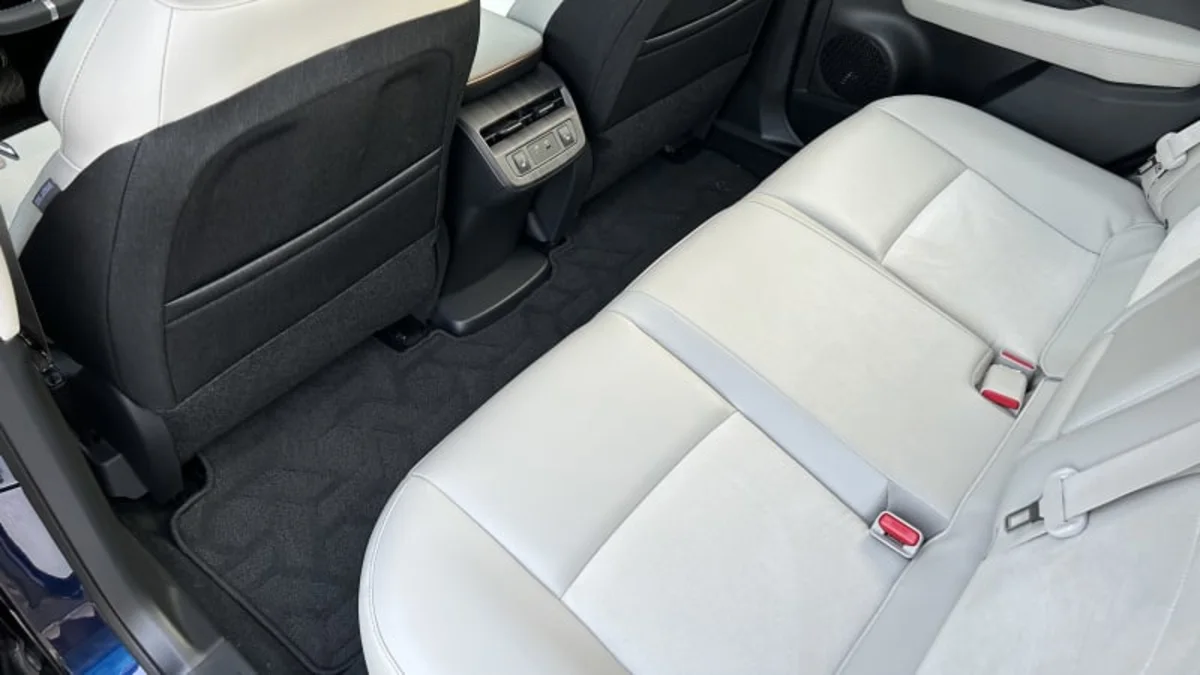
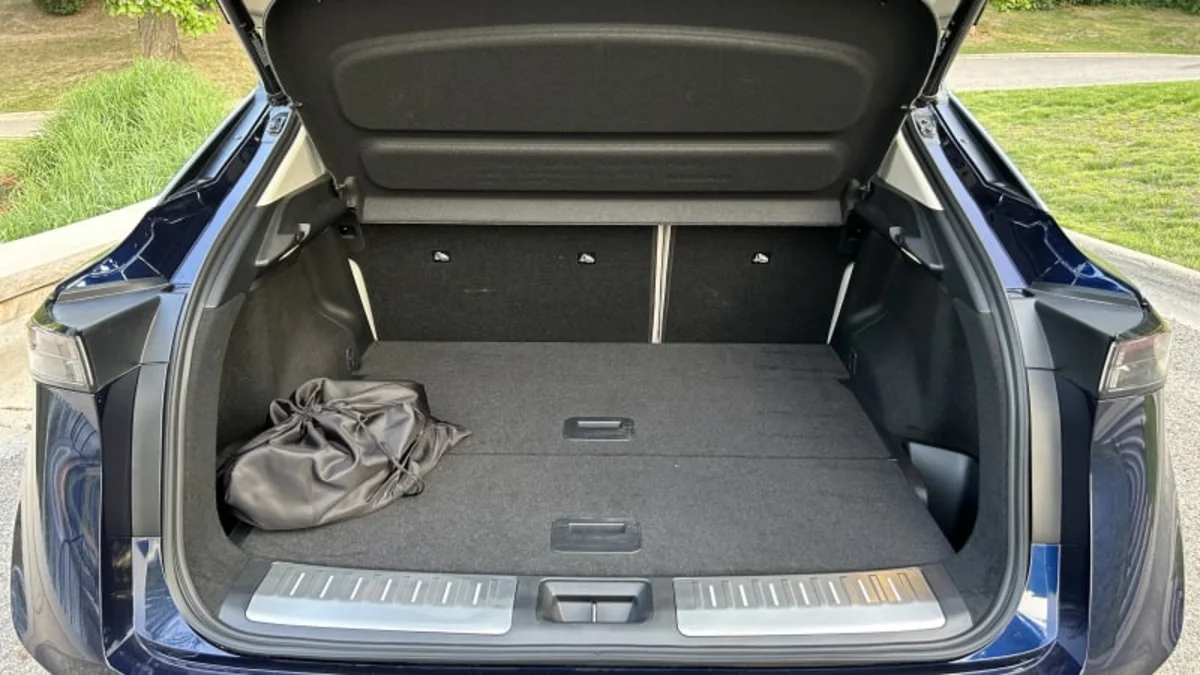
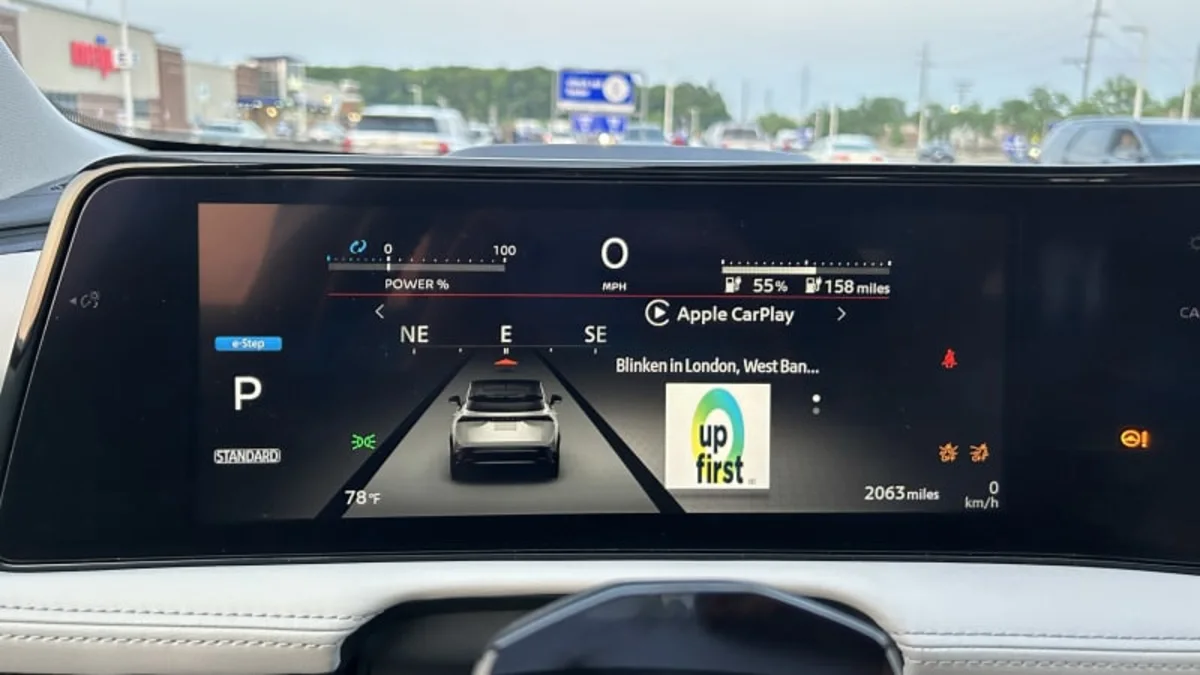
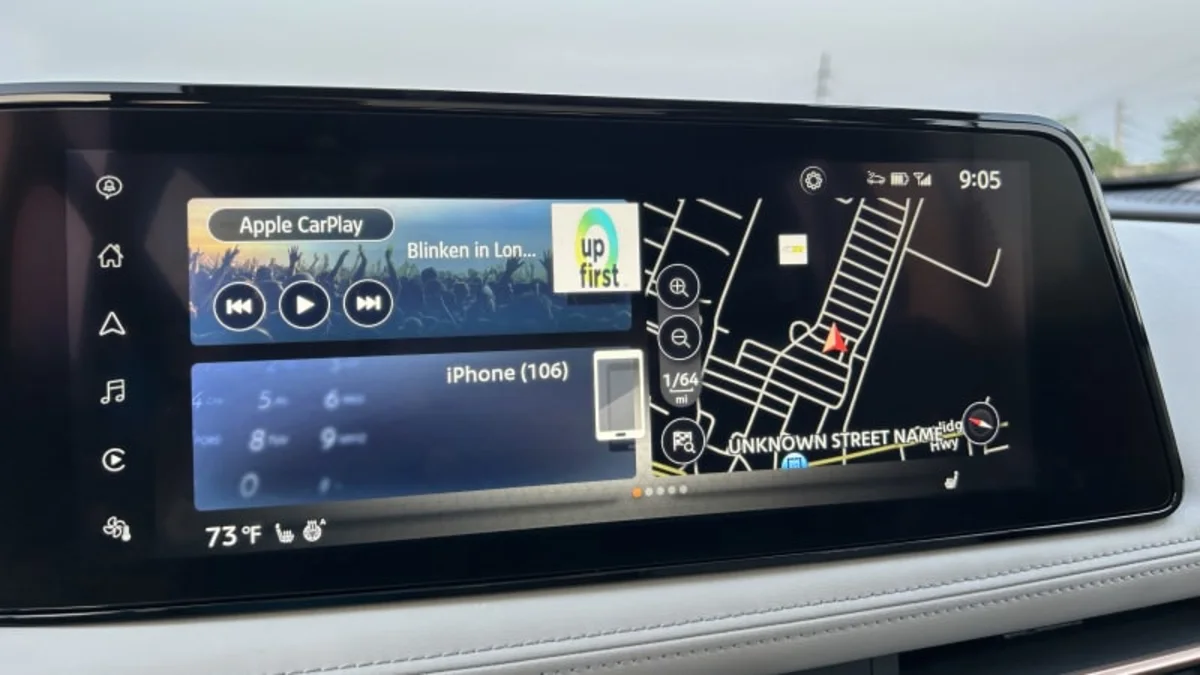
The elephant in the room with the Ariya, and everybody else playing in this class, is still the Tesla Model Y. And it’s impossible to ignore. At Tesla’s current prices (which are subject to change wildly at any moment), you can pick up a Model Y Performance that goes 0-60 mph in just 3.5 seconds and has 303 miles of range for less than this front-drive Empower+ costs. Plus, the Tesla is eligible for U.S. federal tax rebates that the made-in-Japan Ariya won’t get. Those numbers are hard to argue against, and while the Ariya may beat the Tesla in ride quality, interior niceness and available luxury features, price tends to be the deciding factor for most folks. It’s a problem that every OEM is facing after Tesla’s price cuts, and one that just made the Model Y the fastest-selling car in Europe over the first half of 2023.
Setting aside the Tesla for a moment, though, the Ariya carves out a highly compelling niche among the growing number of electric SUVs in this class. The unique interior appointments, spacey design and silky drive characteristics are all massive positives. There’s a sizeable chunk of the buying public that couldn’t care less about whiplash acceleration and super-fast charging on road trips, and, for them, the Ariya is a superb EV option.
Related video:







